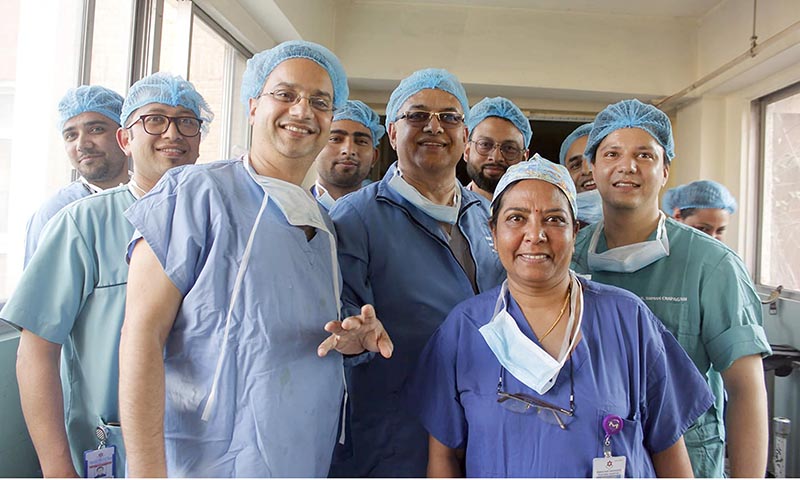PM’s long road to recovery a hurdle in governance
Kathmandu, March 10
Questions are being raised over governance after doctors today said Prime Minister KP Sharma Oli, who underwent successful kidney transplant surgery last week, would have to wait for at least six months to a year to completely recover and work actively like a normal person.
Before undergoing a second kidney transplant on March 4, Oli had said he was going under the knife again to be able to work in “full swing”. Because of his determination to return to work as early as possible, doctors believe, the 69-year-old is recovering at a rapid pace.
The results of his renal, liver and heart function, infection and creatinine tests are normal, Dibya Singh Shah, Nephrology and Surgery Department head of Tribhuvan University Teaching Hospital, who is also the PM’s personal medical doctor, told mediapersons today. “But he needs six months to a year to lead a normal lifestyle and perform work like a normal person,” Singh said.
The PM can perform basic duties from his residence after being discharged, according to Singh. But he must shun hectic schedules and take precautions for at least a month to avoid infection, she added.
“We do not recommend that he should go to crowded places. He should also maintain a respectable distance from people suffering from respiratory illnesses and other infections,” Shah added. “He has to be careful because patients who undergo kidney transplant may encounter unexpected problems.”
As doctors are still performing many tests on the PM, they have not announced his discharge date, although they were previously mulling over sending him home yesterday.
“The doctors must feel confident about his health before he is discharged,” said Shah, adding, “The PM’s family has also requested us to keep him in the hospital for a few more days. In the meantime, necessary arrangements are also being made at the PM’s residence.”
The announcement made today by doctors on PM Oli’s prolonged recovery time frame has stoked fears about erosion in good governance.
“His absence will affect policy-making process and effective implementation of policies that have been introduced. It will also affect big projects, as he inspects many of them. But he can perform other work from home,” said Jhalak Subedi, a political analyst close to the ruling Nepal Communist Party (NCP).
Another political analyst close to the NCP has even recommended that the PM “should step down”.
“As the executive head of the country, the PM is responsible for taking decisions, including appointing people to crucial vacant posts and controlling corruption. It appears he also won’t be able to attend party meetings in person, which will also have an impact on the party. Lately, coronavirus scare has also gripped the nation. This is expected to hit job creation, foreign trade and the economy,” said Hari Roka, a political analyst. “The country can’t wait until the PM recovers fully. So, it is better if he resigns from the post,” added Roka.






